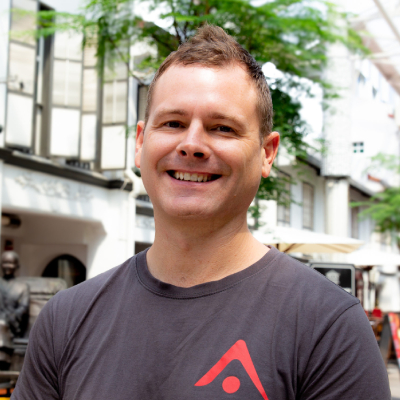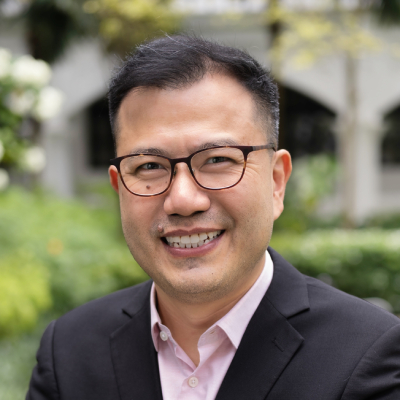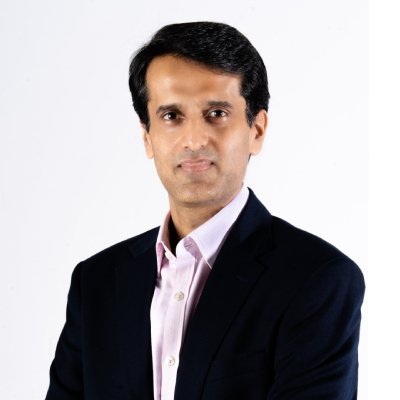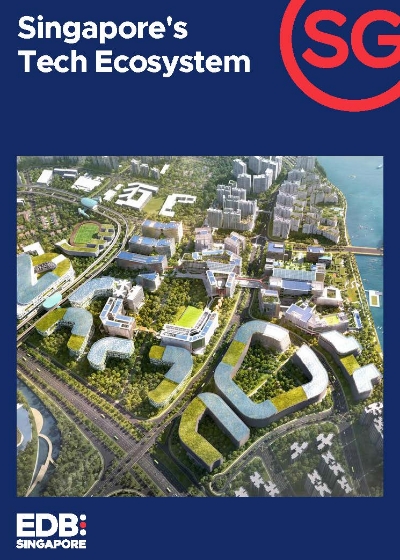Your one-stop guide to Singapore's Technology Ecosystem
Download your guide to expanding in Asia.
According to DealStreetAsia, Southeast Asia’s venture capital (VC) firms closed 23 funds to raise an impressive $3.03 billion in the first six months of this year, surpassing the capital raised in the whole of 2021. However, rising interest rates and inflationary pressures have weighed on the region’s growth and digitalisation. Amid these circumstances, what is the investor outlook for the region, and how can founders continue to chart an effective path in their fundraising and regional expansion journey?
Over a webinar organised by the Singapore Economic Development Board in November 2022, leading investors from Accelerating Asia, B Capital and Genesis Alternative Ventures weighed in on Southeast Asia’s growth trajectory, and how founders can position themselves for success in an environment where profitability and sustainable growth are increasingly taking centre stage. Here are the key takeaways from the session.

Craig Dixon
Co-Founder and General Partner, Accelerating Asia

Hui Jie Tey
Regional Director, Singapore EDB

Jeremy Loh
Managing Partner & Co-Founder, Genesis Alternative Ventures

Kabir Narang
Founding General Partner, B Captial
Leading investors in the region continue to focus on Southeast Asia’s long-term growth trajectory, which continues to grow fast despite current headwinds. According to the latest SEA e-Conomy report by Google, Temasek and Bain, the region is set to reach $200 billion in total transaction value over 2022, which marks a 20% increase from 2021. Over 20 million new internet users came online in 2022, bringing the total number of users to 460 million, while consumer adoption of e-commerce, food delivery and financial payments has remained strong.
Kabir Narang is the Founding General Partner at B Capital, a multi-stage, international investment firm that focuses on enterprise software, consumer enablement, financial services, healthcare, and industrial and transportation companies. He remains optimistic about the region in the long term, pointing to the rapid adoption of digital solutions in the region. “Markets like Indonesia and Vietnam are among the top 30 digitised economies globally. Even amid more challenging global trends, there are trends of resilience in the region.”
Amid current headwinds, there have also been bright spots of growth in new segments across the region. “In the past year, we have seen a slew of new companies come online, including companies in drug discovery, immunotherapy, and telecommunications,” shared Dr Jeremy Loh, Managing Partner and Co-Founder, Genesis Alternative Ventures, a leading Singapore-based venture debt provider to venture and growth-stage companies funded by top VCs in Southeast Asia. Dr. Loh also observed how new hardware companies had developed solutions to address pandemic-related challenges, such as the disinfection of hospital and airport facilities.
Panellists emphasised the need for founders to focus on profitability in 2023. “It is now harder to run a business with bad unit economics, and investors are now doing more due diligence in selecting companies,” advised Craig Dixon, Co-Founder and General Partner of Accelerating Asia, an accelerator VC that runs programs for early-stage startups and investors from Southeast and South Asia, with a focus on pre-Series A startups. “Founders need to think about self-sufficiency in their operations far faster than 12-18 months ago.”
Mr Narang agreed, noting that “There is much deeper focus on profitability, and stronger, more capital efficient players are positioned to do well. Instead of growth, growth, growth, which was the mantra in 2021, it is about how a business grows profitably.”
That said, stronger startups have continued to raise ample funding amid current market conditions. Mr Dixon noted that Accelerating Asia announced its 7th cohort of startups in November 2022, who collectively raised US$5.2 million prior to joining the accelerator program. “Our new cohort is raising money faster than we ever have. You can still fundraise in this difficult time, if you have a good business that shows momentum and growth.”
“There is much deeper focus on profitability, and stronger, more capital efficient players are positioned to do well. Instead of growth, growth, growth, which was the mantra in 2021, it is about how a business grows profitably.”
Kabir Narang
Founding General Partner
B Capital
Current market conditions have also favoured greater consolidation led by stronger players. “In this climate, there are opportunities for stronger players to acquire weaker players … it’s the era for the strong and well capitalised,” observed Dr Loh. For example, one of Genesis Alternative Ventures’ portfolio companies had managed their unit economics and profitability in a disciplined manner, which provided breathing room for the company to pursue growth and acquisitions in 2022, even amid a more limited availability of capital across the region.

Download your guide to expanding in Asia.
Panellists noted how the Southeast Asia investor and startup ecosystem had matured significantly over past years, providing more support to founders in scaling up their operations. Venture capital (VC) investments in the region reached a record US$20.4 billion in 2021, with an aggregate 2021 deal value that remained 35% higher than 2019 and 2020 levels combined. A growing base of serial founders, angel investors, accelerators, and former unicorn founders building their own VCs have also pointed to a maturing ecosystem capable of providing more networks and resources for aspiring founders. “The tools [to support founders] are growing fast, positioning founders to succeed in the years to come,” observed Mr Dixon.
Mr Narang agreed, and observed how early evolution of IPOs and increase in M&A activity in Southeast Asia, alongside greater mentorship by successful founders, were signs of the long-term growth potential in the region. “We are seeing founders build businesses and then give back to the ecosystem, founders who have done well giving advice to the next generation of founders.”
Amid a challenging business environment, companies have found Singapore to be a supportive business hub that provides the funding and support required to scale globally, with an ecosystem of over 300 VCs and private equity firms, and more than 700 family offices. “Despite macro-economic uncertainty, many VC investors in Singapore consider funding and liquidity in SEA to be sufficient, with unspent private capital raised from prior years, waiting to be deployed,” shared Hui Jie Tey, Regional Director at the Singapore Economic Development Board.
“Singapore provides a stable, pro-business environment, and the country’s strong fundamentals of being connected, neutral and trusted have become more important for businesses today.”
Hui Jie Tey
Regional Director
Singapore Economic Development Board
Furthermore, programmes such as the Global Innovation Alliance and Singapore Week of Innovation and Technology continue to support companies in connecting to a wider network of accelerators and corporate partners, while support schemes by the Singapore Government, such as Tech@SG and ONE Pass, help companies to access the critical talent (and employment passes) they need to scale in the region.
Ultimately, Ms Tey predicted that Singapore’s attractiveness to founders and their companies will continue to grow amid trade tensions and supply chain disruptions. “Singapore provides a stable, pro-business environment, and the country’s strong fundamentals of being connected, neutral and trusted have become more important for businesses today.”